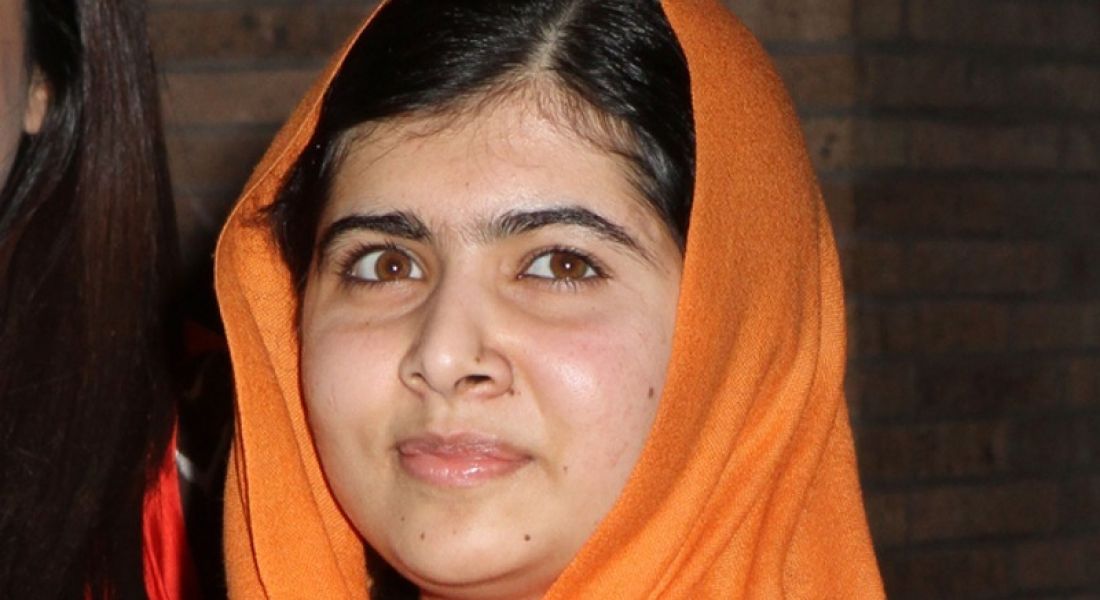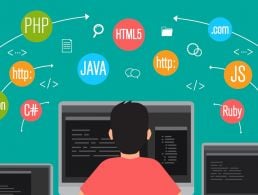If the tragic events in Paris have taught us anything it is that we now more than ever need to have a better understanding of the world we are in. Education ought to be the greatest equaliser of them all, writes John Kennedy.
Last week, when it emerged that Politics and Society was to be added to the Leaving Cert curriculum, a colleague suggested that the fact coding or computer science have yet to be added might make the basis for an interesting rant.
Right, I said, filing the idea away, nice one. I was about to get anti-political rather than apolitical. If it was going to take 12 years to put politics on the curriculum, how long will it take before computer science is finally added, I inwardly fumed?
But as the tragic events unfolded in Paris on Friday evening and the next day’s images of blood on concrete footpaths melded with what I consider angry opinions from people much younger than me against innocent people fleeing for their lives, my mind changed. You know what, learning politics isn’t such a bad idea if we could all just know a bit more about each other and this planet we all have to share.
Growing up on these islands you learn by default to almost ignore the mass of contradictions you are forced to put up with. Religion and politics especially.
‘One duty we owe to history is to rewrite it’
– OSCAR WILDE
Growing up on these islands you are often given a false sense of security – even superiority – about the quality of our education systems. That was fine in the 1980s and 1990s when Irish emigrants could actually say their education stood to them on foreign shores, but we are now in a connected world where innovation can come from anywhere.
And growing up on these islands we often swallowed the greatest lie of them all – that this was a society that actually cherished its young; sur’, didn’t it say so in the constitution?
The latter point is particularly poignant when you consider non-Catholic parents in 2015 actually struggle to get a primary school place for their children. This beggars belief. Ireland in the 21st century is home to the international headquarters of some of the world’s biggest technology companies and if our policymakers are serious about entrepreneurship we ought to be encouraging founders of the world’s fastest-growing start-ups to come and start up here too. What kind of message are we sending the world if these people can’t find a school place for their children?
So I have come around to thinking the addition of Politics and Society, which I understand will include everything from Karl Marx to capitalism, is no bad thing if it enlightens and informs our young people about the world where we live. But that does not mean we should ever slow in our eagerness to see coding added to the school curriculum in Ireland.
A code for life
The computer science opportunity is one that cannot be delayed so long.
The UK has moved with energy to add coding to the primary and secondary school curriculum as a long-term solution to resolving the growing skills gap. The curriculum was published in 2013 and now UK parents are familiar with the sights and sounds of kids returning from school babbling about Boolean logic.
This is not the case in Ireland, well perhaps with the exception of Cork where the local electronics industry took it upon itself to devise a Boolean logic game for primary school kids.
It was also from Cork in 2011 that a teenage computer enthusiast called James Whelton emerged, who along with Bill Liao created CoderDojo in response to the lack of computer training in Irish schools. The effect was electric and from Cork to Arranmore in Donegal, dojos began taking place. Within months, the first CoderDojo events were being held in London, Tokyo and New York. Today, the CoderDojo movement is a not-for-profit organisation where, through a network of volunteers and kids teaching other kids, there are more than 800 dojos operating in 60 countries worldwide. Within Europe alone CoderDojo classes reach more than 25,000 students, and the organisation also runs the annual Coolest Projects Awards.
So, if the evidence is there that kids want to learn how to code, why are our education policymakers still dragging their feet?
Do we need to wait another 12 years? There are 700,000 ICT vacancies across Europe and new app economies created by Apple, Google and Facebook are creating thousands of new jobs and billions of dollars in new wealth for app creators.
History is a good teacher, we just don’t need to relive it
Why does this matter in the context of politics and the awful events of Paris at the weekend? History.
During a visit to Trinity College last week, Apple CEO Tim Cook made a very interesting point. He told the young students assembled in the historic Exam Hall about Apple in Cork: “We don’t just see us as located here but rooted here, not just in terms of business but values, tolerance, diversity and equal opportunities in and out of the workplace.”
He said that Apple’s Cork offices are the most diverse on earth with people from 80 countries working side-by-side.
He later quoted Oscar Wilde: “One duty we owe to history is to rewrite it.”
The world is changing right before our eyes. The evils of today’s world, the politics, the zealous misinterpretations of religion, the divisions, class systems, are all down to the division of the spoils of economy. Who has what?
Despite having the richest oil wells in the world, and being one of the cradles of civilisation where medicine and maths were advanced many thousands of years ago, Mesopotamia (modern Syria and Iraq) is now a battleground thanks to post 9-11 policies that were more about opportunism than revenge. This battleground extended to the suburbs of Paris where disaffected and socially and economically isolated young people fell prey to religious propaganda and could be turned into ruthless, cold-blooded killers. This battleground extends to Afghanistan and Pakistan, where in 2012 a young teenage girl called Malala Yousafzai was shot in the face by the Taliban because all she wanted to do was go to school. She has gone on to become a global beacon for the right to education, especially for young girls.
Years ago, I spoke to Wikipedia founder Jimmy Wales and he said his proudest achievement was putting a free encyclopaedia into the hands of millions of people around the world for people who could never have afforded a set of encyclopaedia.
In 1976, the son of a Syrian immigrant to the US called Steve Jobs co-founded Apple in Los Altos, a suburb south of San Francisco. In 1980, the late Steve Jobs started an Apple factory in Cork. Now the same factory is the workplace of 5,000 people and CEO Tim Cook last week announced a further 1,000 jobs are to be created in Cork in the next year or so. Not bad going for a son of Syria, not unlike the thousands who today flee for their lives in rickety boats and follow train tracks and look to Europe for salvation. Think about that for a moment.
Across the world today there are children who walk for miles and swim rivers because they understand the power of a good education to make their lives better.
Education is the greatest equaliser of them all and ignorance is the greatest enemy of us all.
So, yes, I could rant about computer science not being included in our curriculum. I could rant about politics and parish pump politics especially. But education is everything and it is the greatest equaliser of them all.
Like all children of every race, economy and denomination, it needs to be cherished.
Malala image via Shutterstock




